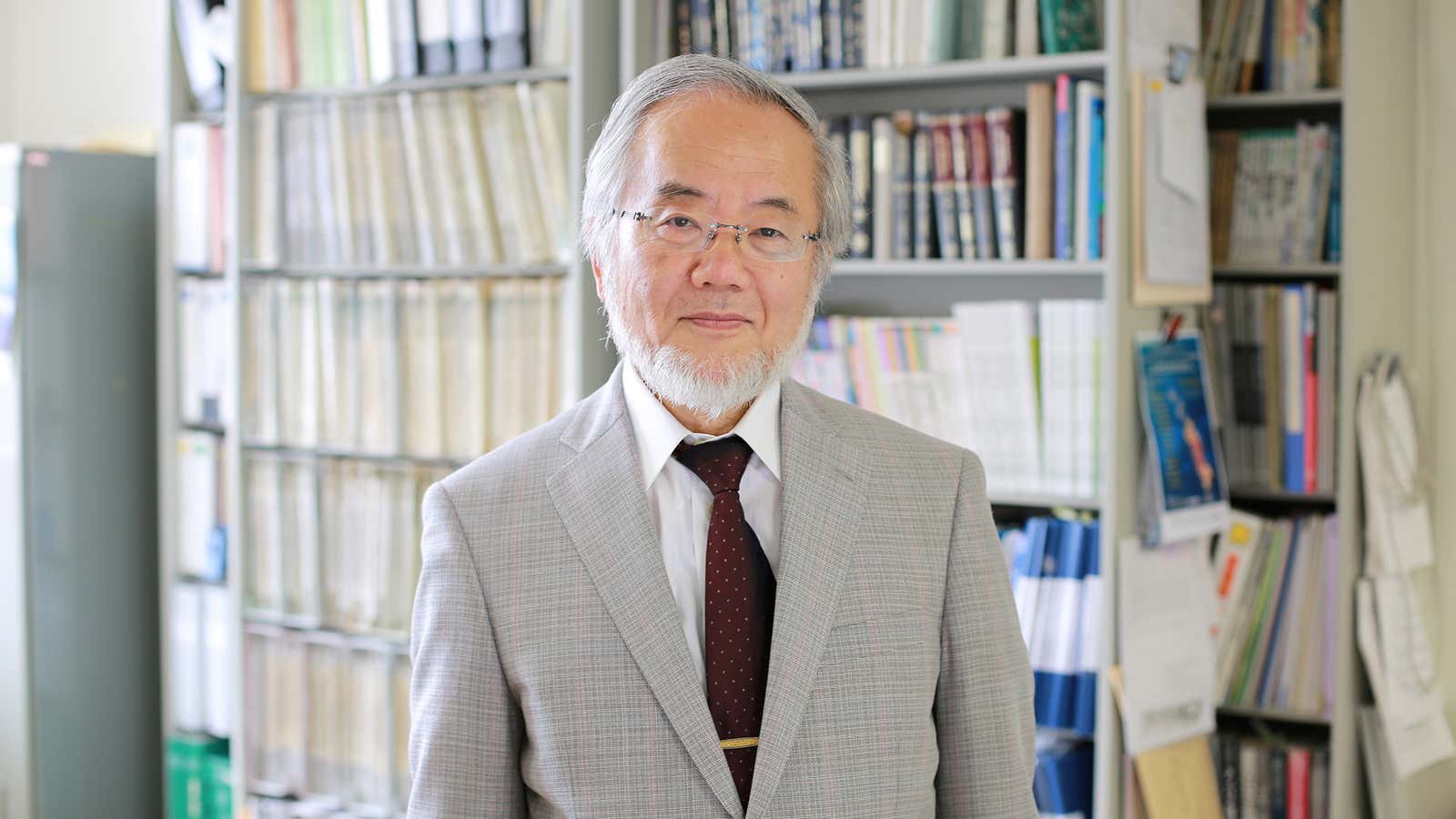A Tokyo Institute of Technology biologist, Yoshinori Ohsumi, has been awarded the 2016 Nobel Prize in physiology or medicine. He is the 23rd Nobel Laureate born in Japan, and his prize is the sixth medicine Nobel won by the country’s researchers.
Ohsumi won the prize “for his discoveries of mechanisms for autophagy.” Autophagy is the process by which biological cells digest and recycle their constituent parts.
A biological cell has a lot of crucial things packed in a tiny space. Sometimes, parts of it break down, and sometimes it’s invaded by foreign bodies. For the cell’s complicated machinery to keep functioning, then, it needs to make sure that this debris doesn’t get in the way. That’s what autophagy achieves. When autophagy goes wrong, it can bring about many human diseases, including type-2 diabetes, Parkinson’s disease, and cancer.
The concept originated in the 1960s, when researchers observed how a cell destroyed its own organelles, formed a vesicle containing the broken-down material, and transported it to the recycling compartments within the cell, called lysosomes. For another 30 years, however, autophagy remained poorly understood because researchers were unable to set up the right experiments in the lab to study it.
In the 1990s, Ohsumi made a series of breakthroughs using yeast cells that helped him elucidate the mechanisms by which autophagy occurs. It was the first time that we understood the sophisticated machinery involved in a crucial process occurring every complex living cell.
Ohsumi’s work created a lot of interest in autophagy. It is now one of the most intense areas of research in biomedicine.
Since then, scientists have learned that there are many types of autophagy. Macroautophagy is involved in breaking down large cell parts, such as organelles; microphagy for smaller cell parts, such as unnecessary floating particles in the cell; and xenophagy for breaking down invading bacteria or viruses.
Autophagy is crucial to understanding aging, which leads to a group of diseases that kill most humans. The ability to intervene in autophagy in precise ways could help humans live healthier and longer lives. This makes Ohsumi’s work critical for medicine in the 21st century.
